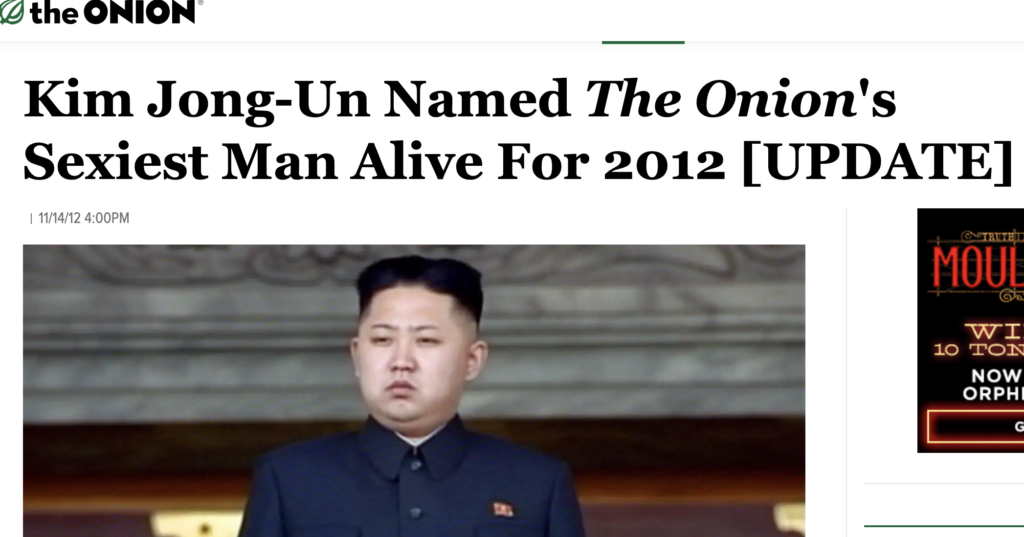Way back in 1991, the SF Bay Guardian ran a parody issue for April Fool’s Day that (as a key legal decision notes) accused a local landlord of using electroshock therapy on his tenants.
In our fake Letters to the Editor section was the following:
I don’t understand why Vince Bielski is so upset about electroshock therapy. I find that my tenants who have undergone this treatment are much more cooperative.
Adam Sparks, San Francisco
Bielski was a Bay Guardian reporter who had just done an expose on the use of the controversial psychiatric therapy in local hospitals. Mr. Sparks, who legal filings noted was widely known and had been fighting the city over his practices as the owner of a residential hotel, was not amused.
His lawsuit against the Bay Guardian led to a precedent-setting decision at the California Court of Appeal defending the right of news media to make fun of public figures, even if those people can’t take a joke.

And the case lives, today, as part of a wonderful legal brief filed by The Onion in a case involving an Ohio man who created a fake Facebook account for the Parma Police Department.
In the fake account, Anthony Novak changed the department’s logo from “We Know Crime” to “We No Crime,” and suggested that the department would soon be offering a mobile abortion clinic and a program to rehabilitate pedophiles.
Only about 100 people saw the page before Novak took it down. If the cops had just let it go, nobody outside of Northern Ohio would ever have heard of or cared about the City of Parma, population 86,000.
But talk about not taking a joke: The cops arrested Novak and charged him with “disrupting public services.” He was acquitted at trial, and later sued the city.
The trial and appeals courts said that the cops didn’t undermine Novak’s First Amendment rights by arresting him for a parody. He’s now asking the US Supreme Court to weigh in.
There’s a lot at stake here. As the Onion notes:
The Onion files this brief to protect its continued ability to create fiction that may ultimately merge into reality. As the globe’s premier parodists, The Onion’s writers also have a self-serving interest in preventing political authorities from imprisoning humorists. This brief is submitted in the interest of at least mitigating their future punishment.
Americans can be put in jail for poking fun at the government? This was a surprise to America’s Finest News Source and an uncomfortable learning experience for its editorial team.
The Onion cannot stand idly by in the face of a ruling that threatens to disembowel a form of rhetoric that has existed for millennia, that is particularly potent in the realm of political debate, and that, purely incidentally, forms the basis of The Onion’s writers’ paychecks.
And the brief notes that parody depends on the idea that the reader is initially tricked:
Tu stultus es. You are dumb. These three Latin words have been The Onion’s motto and guiding light since it was founded in 1988 as America’s Finest News Source, leading its writers toward the paper’s singular purpose of pointing out that its readers are deeply gullible people
… The phrase “you are dumb” captures the very heart of parody: tricking readers into believing that they’re seeing a serious rendering of some specific form—a pop song lyric, a newspaper article, a police beat—and then allowing them to laugh at their own gullibility when they realize that they’ve fallen victim to one of the oldest tricks in the history of rhetoric. See San Francisco Bay Guardian, Inc. v. Super. Ct., 21 Cal. Rptr. 2d 464, 466 (Ct. App. 1993) (“[T]he very nature of parody . . . is to catch the reader off guard at first glance, after which the ‘victim’ recognizes that the joke is on him to the extent that it caught him unaware.”)
At one point, The Onion notes, its parody issue proclaiming the North Korean dictator Kim Jong-Un the “sexist man alive” got picked up and reprinted by the official news agency of the People’s Republic of China. The folks there thought it was real.
It’s a lot of fun to read the brief, and a lot of fun to talk about all of this. But there’s a deadly serious issue here, and it’s entirely unclear how this radical right-wing Supreme Court will address it.
Parody has been a part of the political world for, the Onion estimates, thousands of years. It’s certainly a major part of the world today: Without protections for parody, late-night TV comedy couldn’t exist. Saturday Night Live would be gone. So much of what we consume as entertainment would be at risk; so much art, so much writing, so much performance would be subject to censorship.
You can’t do this stuff unless you have legal protection. The threat of libel suits (an in the case of Novak, arrest) would mean the end of not just The Onion but a whole massive genre of creative work.
I wonder: Does Brett Kavanaugh have a sense of humor? Does Clarence Thomas? Does Amy Coney Barrett? None of them particularly like the news media.
Will they take the case and ruin all the fun (and strike a bitterly deep blow to the First Amendment)?
At this point, I am not laughing.






